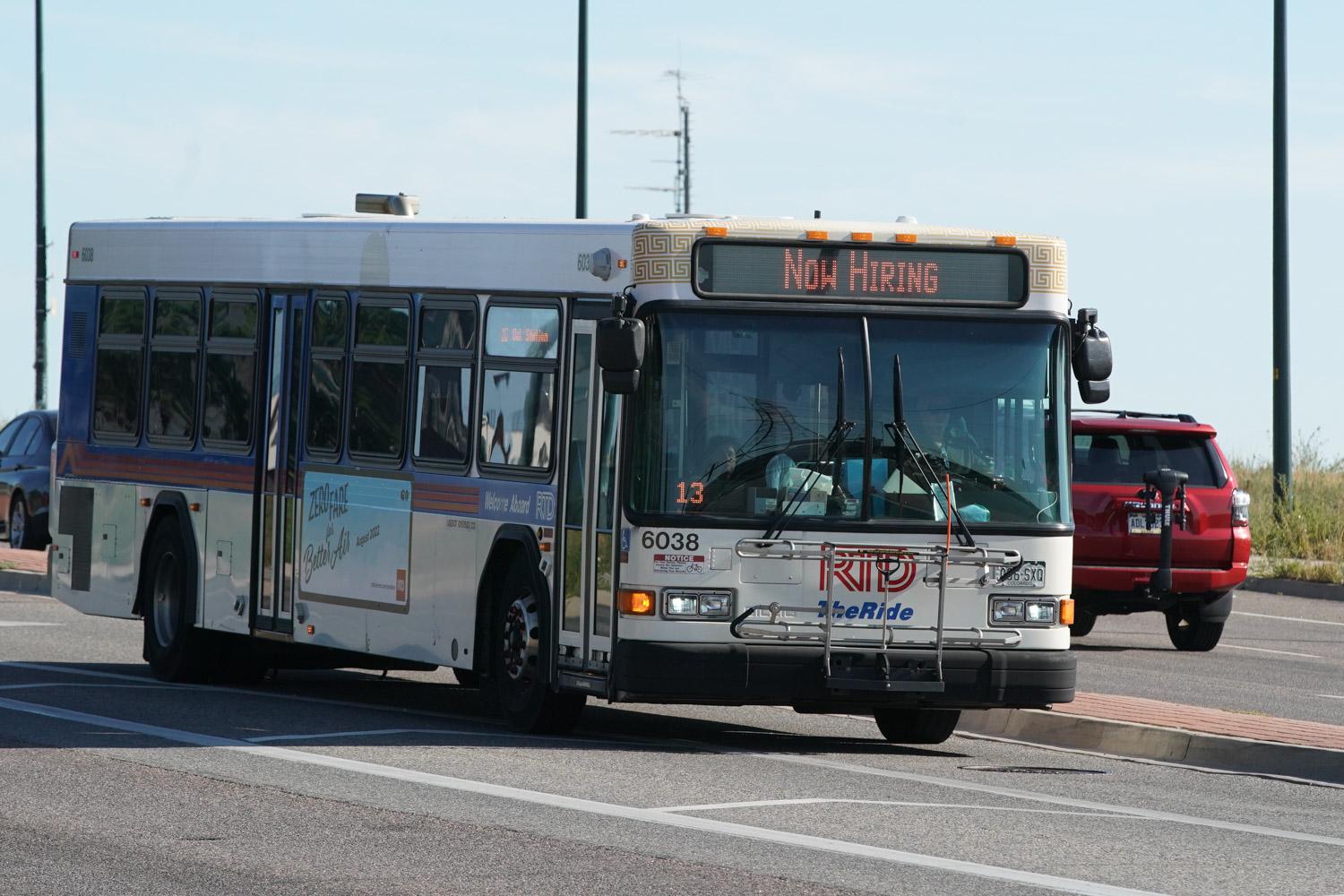Earlier this year, we asked more than 100 Denverites what they want to hear candidates address in the upcoming election. Number six on the list was transportation. Issues of concern included accessible and affordable public transportation, parking traffic and bike lanes.
With two empty RTD director seats and a big ordinance about sidewalks on the ballot, voters will have a big say in how people get around. Ballots will be sent on Oct. 17 and voting concludes Nov. 8.
Here's what you need to know about where transportation shows up in the coming election.
Regional Transportation District Directors
RTD is run by a 15-member, elected board of directors. Members serve four terms, and each one represents a different district. There are two districts in the Denver area -- District B and District C -- that each have one write-in candidate.
That basically means nobody collected enough signatures to appear on the ballot.
District B: The sole candidate is JoyAnn Keener Ruscha.
District C: The sole candidate is Michael Guzman.
City and County Ballot Questions
City and County Ballot Questions address the details of local politics and Denver laws, taxes and policies. Some of these questions, called referrals, were brought to the voters by City Council. Others, called initiated ordinances, were brought to voters by citizens who collected signatures from registered voters. Ballot issues, like the one some voters will see which was brought by the Valley Sanitation District, are proposed by districts.
Here are the questions that directly relate to transportation
Referred Question 2J: Should the city spend all the money it collected from its .25% Climate Actions sales tax and continue to collect the tax which has paid, in part, for green transportation projects.
Initiated Ordinance 307: Should Denver create a Sidewalk Master Plan and program to remove responsibility for sidewalk repair from homeowners and put it on the city. A fee paid by homeowners would fund the program.
U.S. Senators and Representatives for Congress
U.S. senators and representatives propose and vote on federal policies, both new laws and how the government plans to spend taxpayer dollars. Decisions in Washington D.C. can influence where money flows locally.
Senators and Representatives will help decide how to spend money on transportation: roads, electric vehicle infrastructure, e-bike rebates, and other programs.
Two senators represent Colorado, but the state will have eight congress members in the next session, giving smaller regions a voice in policy.
Read about the U.S. Senate race between incumbent Michael Bennet, a Democrat, here and his Republican challenger Joe O'Dea here.
Governor
The state's governor boasts executive powers. Whoever is elected can veto new legislation from the Statehouse. Vetoes can only be overturned with 66 percent-plus votes from both the Colorado House and Senate.
In those two bodies, state lawmakers will likely be addressing roads, public transportation, Colorado Department of Transportation policy, electrification of transportation and more.
The governor also oversees transportation-oriented state agencies, boards and commissions, including the Colorado Department of Transportation, the Passenger Tramway Safety Board, the Scenic and Historic Byways Commission, the Towing Task Force and the Transportation Commission.
Here's more about Gov. Jared Polis and Heidi Ganahl, who had a recent spat about who has a more authentic relationship with their internal combustion engine vehicles.
Attorney General
As the top attorney for the state, the Attorney General oversees the Transportation Unit, which provides legal support to the Colorado Department of Transportation and the Colorado Transportation Commission. That includes everything from court cases, construction disputes, and contracts.
Here's more about who's running.
State Treasurer
The State Treasurer ensures the collection and spending of tax dollars runs smoothly, and helps residents find their unclaimed property. The treasurer ensures smooth operations when the state collects and spends money on transportation.
Here's more about who's running.
State senators and representatives
State senators and representatives pass laws and decide how tax dollars are spent. Most years, they address transportation infrastructure. Hot topics in the upcoming session likely include gas prices and regulations, the electrification of transportation, and the quality of the state's roads and bridges.
?️ For more information on the November ballot, check out the Denverite and Colorado Public Radio ballot guides.










